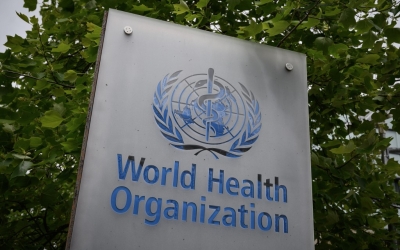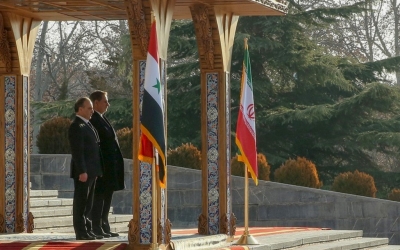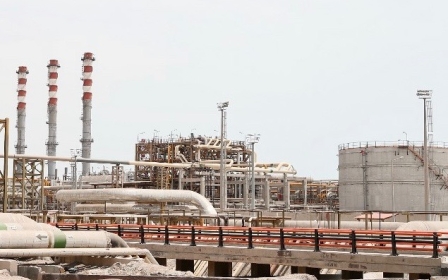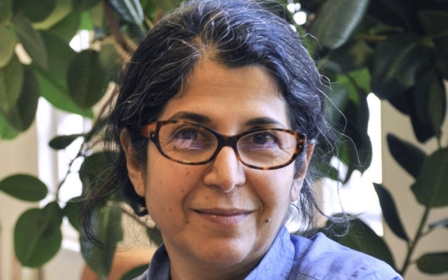US sanctions Iran's interior minister over November protest crackdown
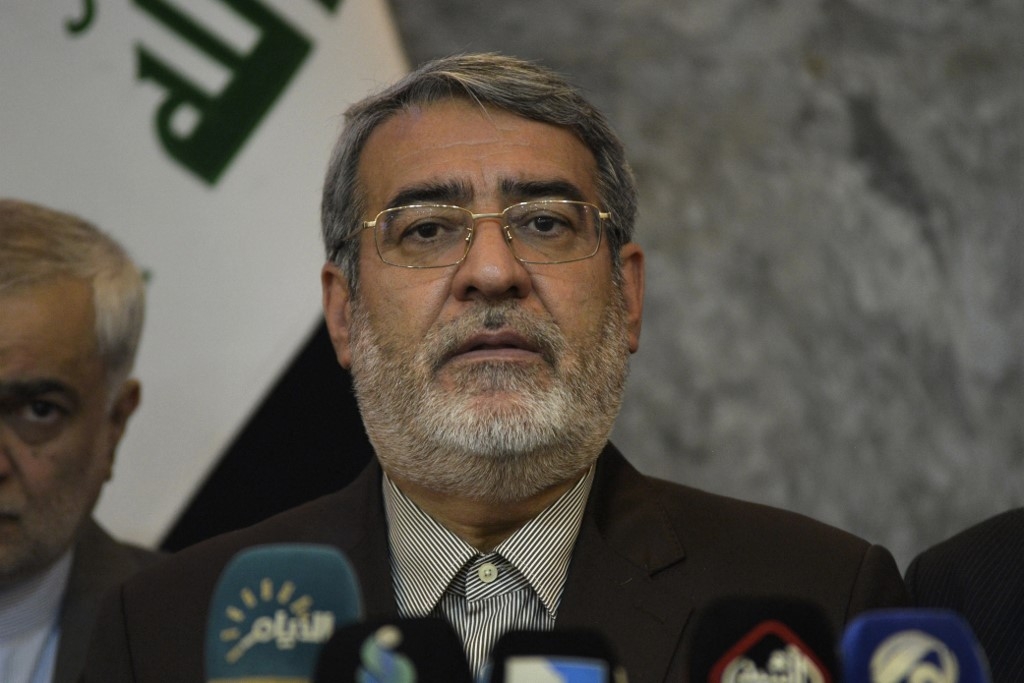
The United States has imposed sanctions on Iran's interior minister, accusing him of issuing orders that led to violence against protesters last year when the government announced a surprise fuel price hike.
Secretary of State Mike Pompeo accused Iranian Interior Minister Abdolreza Rahmani Fazli on Wednesday of ordering law enforcement officers to use lethal force against protesters in November.
New MEE newsletter: Jerusalem Dispatch
Sign up to get the latest insights and analysis on Israel-Palestine, alongside Turkey Unpacked and other MEE newsletters
The United States has said at least 1,000 Iranians may have been killed in the government's crackdown on protesters, while human rights groups have shared much lower estimates. Amnesty International said in December that it had documented 304 crackdown-related deaths.
"We have reason to believe that he is the individual who gave orders in November 2019 authorising Iranian police forces to use lethal force on peaceful protesters inside of Iran," Pompeo said. "His evil commands killed Iranian citizens. We're proud to mete out what justice we can on behalf of the slain and silenced inside of Iran."
Protests in Iran erupted on 15 November after Tehran slashed national oil subsidies, which caused petrol prices to increase by more than 50 percent.
A series of sanctions
Eleven other individuals and entities were sanctioned under US human rights authorities on Wednesday, Pompeo said, without listing them all.
Seven of those who were blacklisted are senior law enforcement officials, according to the Treasury Department's website. A provincial commander of Iran's Islamic Revolutionary Guard Corps (IRGC) was also sanctioned.
Iran's LEF Cooperative Foundation was also blacklisted. The Treasury Department said the foundation, which is active in Iran's energy, construction, services, technology and banking industries, is controlled by Iran's official Law Enforcement Forces. The foundation's director and members of its board of trustees were also blacklisted.
Wednesday's action freezes any US-held assets of those blacklisted and generally bars Americans from dealing with them.
"The United States will continue to hold accountable Iranian officials and institutions that oppress and abuse their own people," Treasury Secretary Steven Mnuchin said in a statement.
Two years of 'maximum pressure'
Thursday marks the two year anniversary of the US's "maximum pressure" campaign that was launched against Iran after US President Donald Trump unilaterally withdrew from the Iran nuclear deal struck by former President Barack Obama.
In it's campaign, the Trump administration has reinstated a string of economic sanctions that had been eased under the nuclear accord.
The result has been rising tensions between Washington and Tehran that have led to an escalation in military confrontations. Still, the US has said sanctions against Iran have been a success. Recently, the US alleged that Iranian sanctions were forcing the country to scale back its military presence in Syria, which Iran denied.
Several US politicians, rights groups and activists have called on the administration to temporarily lift its sanctions amid the coronavirus pandemic.
Iran has been hit by the pandemic harder than any country in the Middle East, with about 122,500 cases of Covid-19 and more than 7,000 related deaths.
Addressing the World Health Organisation's annual assembly on Monday, Iran's Health Minister Saeed Namaki slammed US sanctions as "inhumane", particularly given the country's struggle to mitigate the spread of the virus.
Namaki called on world leaders to hold Washington accountable for the "unnecessary suffering and pain" burdening Iran's population because of US sanctions.
Middle East Eye delivers independent and unrivalled coverage and analysis of the Middle East, North Africa and beyond. To learn more about republishing this content and the associated fees, please fill out this form. More about MEE can be found here.


